EASTERN EYE readers had better hurry if they want to catch Bhangra Nation: A New Musical at the Birmingham Repertory Theatre where it is on only until next Saturday (16).
I went last week and I’m glad I did, as the evening turned out to be very enjoyable.
The Rep is surprisingly good at putting on new works that prove to be big hits.
The biggest was in 1996, when I went to the first night of Ayub Khan Din’s East is East. People brighten visibly and tell me, “Oh, I’ve seen the film, with (the late, lamented) Om Puri.”
I have to resist the urge to tell them: “Ah, yes, but the play was much better.”
Even on first night, I recognised East is East was something special. Looking back, I reckon it is the best play that has been written in the past 50 years in Britain. At least, it is the play I have enjoyed the most.
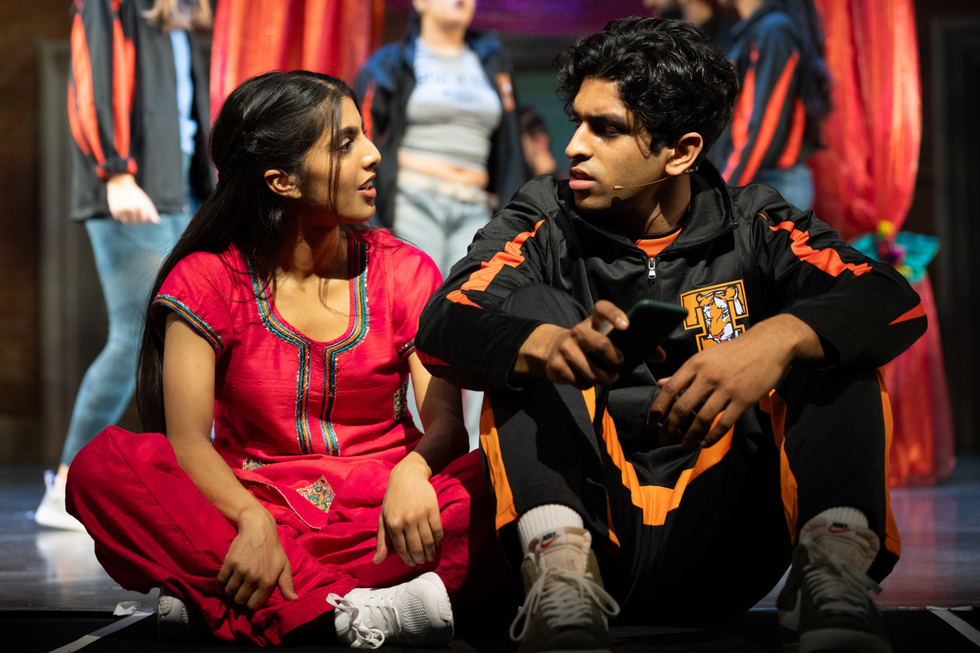
I am not saying that Bhangra Nation... is going to be as big a hit, but it certainly deserves a tour of the UK and even a West End run. It turned out to be very different from what I had thought it would be.
I had assumed it would be a very noisy “Balle, balle” Punjabi evening, with youngsters throwing themselves around on stage, to the accompaniment of a deafening dhol.
There was quite a bit of bhangra, but there was also a pleasing khichri of Bollywood dancing, kathak, ghazals and coloured dust being tossed around as though we were in the middle of the festival of Holi.
At one point, it was Andrew Lloyd Webber’s Bombay Dreams meets West Side Story.
A couple of touches reminded me of East is East. Especially when one of the characters waves around a papier mache of a woman’s uterus.
In East is East, Saleem is one of the boys who tells his (Pakistani) father that he is an engineering student, but has secretly enrolled on an arts course. He crosses a line with even his indulgent (English) mother when he comes home with a depiction of the female anatomy. And there are imaginary strings to be cut, or jumped over, in East is East and in Bhangra Nation...
The first thing to say about Bhangra Nation... is that it is set not in Birmingham, the home of British bhangra, but in an imaginary college in Lansing, Michigan.
The husband and wife team of Mike Lew and Rehana Mirza, who have taken 10 years to finesse their story to the version we saw at the Rep, have built the singing and dancing, plus the colourful costumes and innovative stage design, around quite a subtle story.
It is about cultural purity and what second generation Asians have to do to prove they are “real desis”.
There is gathering tension and, eventually, a falling out between the two leading members of the T.I.G.R.E.S bhangra team – the initials are an acronym for “True Indian Gujus Running Everything…Shukria”.
Having come first in bhangra at the Michigan state level, the team has to work out its routine before facing other teams in the national competition.
Preeti (played by Zaynah Ahmed) remembers trips to Chandigarh to see her relatives and wants bhangra to be the real thing – as she sees it.
She wants to “bring integrity” and “lead with Punjabi authenticity”.
But Mary Darshini Clarke (played by Jena Pandya), the daughter of an English father and an Indian mother, wants to experiment by mixing in a little kathak.
“I want to put kathak in routine!” she sings. But Preeti won’t have it: “We’re not putting kathak in our bhangra routine. If anything, we need more bhangra, less everything else.”
She says someone else might be the team captain, but “I’m Punjabi – as is bhangra – and this is a bhangra team.”
Mary persists: “Yeah, but bhangra and kathak are both Indian dance forms.”
Preeti is unmoved: “I’m not jamming in kathak like this routine is some all-desi cultural tour of south Asia.”
Mary suggests: “Instead of shooting down my idea, let’s just try it.”
Preeti then plays the race card: “This sounds like a white girl idea and I don’t want to do it.”
Mary, who is deeply wounded, remembers her late mother, who taught her kathak: “You know my mom’s Indian? Well, if that’s how you feel, I’m not sure I should be here.”
It’s at this point that the musical really takes off, as Mary wonders whether – being of mixed parentage – she will ever be accepted as a 100 per cent desi.
Her friend Sunita (Siobhan Athwal) tries to discourage her from sending Preeti a letter: “So, when you say I have white-girl ideas, are you saying I’m not Indian enough? Or I’m not Indian at all? Because, frankly, I doubt most white girls even know what kathak is. And I even reminded you about my mom being Indian, so as someone biracial, that hurts.”
Sunita tries to reassure Mary: “You don’t have to send this because you proved your own point. How many white girls know that desi refers to a larger diaspora of south Asian people originating from India, Pakistan, Bangladesh, Sri Lanka and Nepal… It doesn’t matter! This girl’s getting in your head. I hate (it) when people think that just because you’re not being Indian in their way, you’re not even desi at all. We’re not one thing. Like this – is it art, is it desi art, is it awesome art?
“It’s all of those things. It’s my papier mache uterus made of the Kama Sutra protesting the exotification of Asian women. I can be a striking visual artist and a pharmacology major, we contain multitudes.”
Preeti’s barbs have disturbed Mary: “I dunno, according to Preeti, I just contain a multitude of white girl ideas. Sunita, what if she’s right? What if I’m not Indian enough?”
She points out that her father, whom she loves, is white: “I don’t speak Hindi, or wear a bindi, or go to the pujas every night.”
In the end, Mary starts her own team, the Bhangra Wood Ducks, and takes on a coach. Rekha (Sohm Kapil) escaped from India to seek freedom in the west, where she dispenses Indian snacks and culture from her Samosa Hut.
She won’t take on Mary as a pupil until she is shown due deference and addressed as Rekhaji: “I do bhangra, Bollywood, bharatanatyam, (dandiya) raas, kathak and tap. And I don’t audition for you, you audition for me.”
I won’t reveal how the differences between Mary and Preeti are eventually resolved, but as one of the characters said, “To me, this team is about desis coming together”.
The real lesson, even if included in a bhangra musical, is that we should beware of any attempt to seek racial purity.
Bhangra Nation: A New Musical is on at the Birmingham Rep until next Saturday (16)

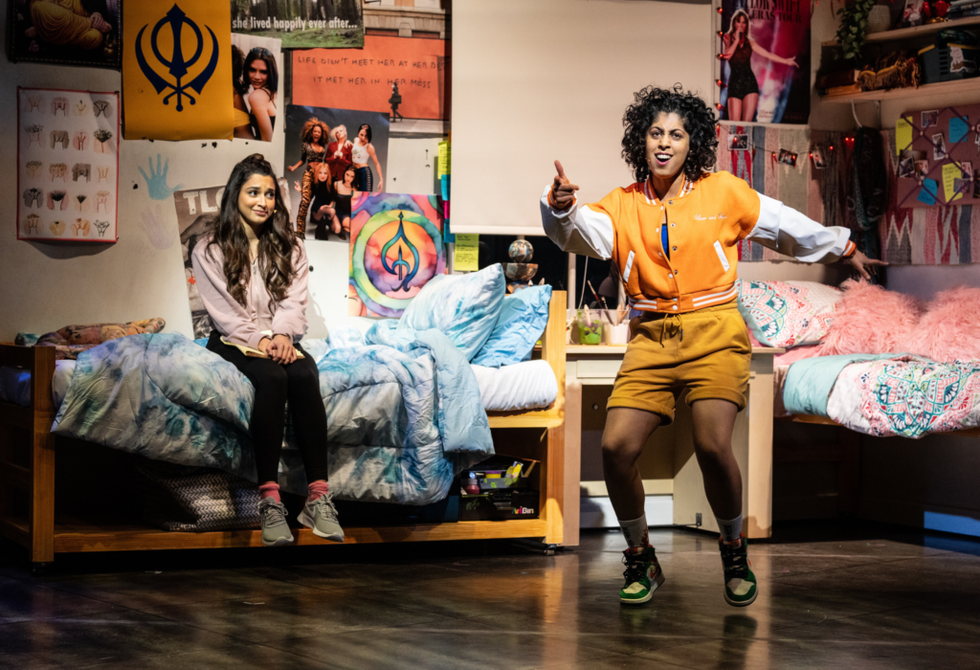




 An explosive new play that fuses biting satire, history and heartfelt storytellingPleasance
An explosive new play that fuses biting satire, history and heartfelt storytellingPleasance








 Lunchbox is a powerful one-woman show that tackles themes of identity, race, bullying and belongingInstagram/ lubnakerr
Lunchbox is a powerful one-woman show that tackles themes of identity, race, bullying and belongingInstagram/ lubnakerr She says, ''do not assume you know what is going on in people’s lives behind closed doors''Instagram/ lubnakerr
She says, ''do not assume you know what is going on in people’s lives behind closed doors''Instagram/ lubnakerr
 He says "immigrants are the lifeblood of this country"Instagram/ itsmetawseef
He says "immigrants are the lifeblood of this country"Instagram/ itsmetawseef This book is, in a way, a love letter to how they raised meInstagram/ itsmetawseef
This book is, in a way, a love letter to how they raised meInstagram/ itsmetawseef
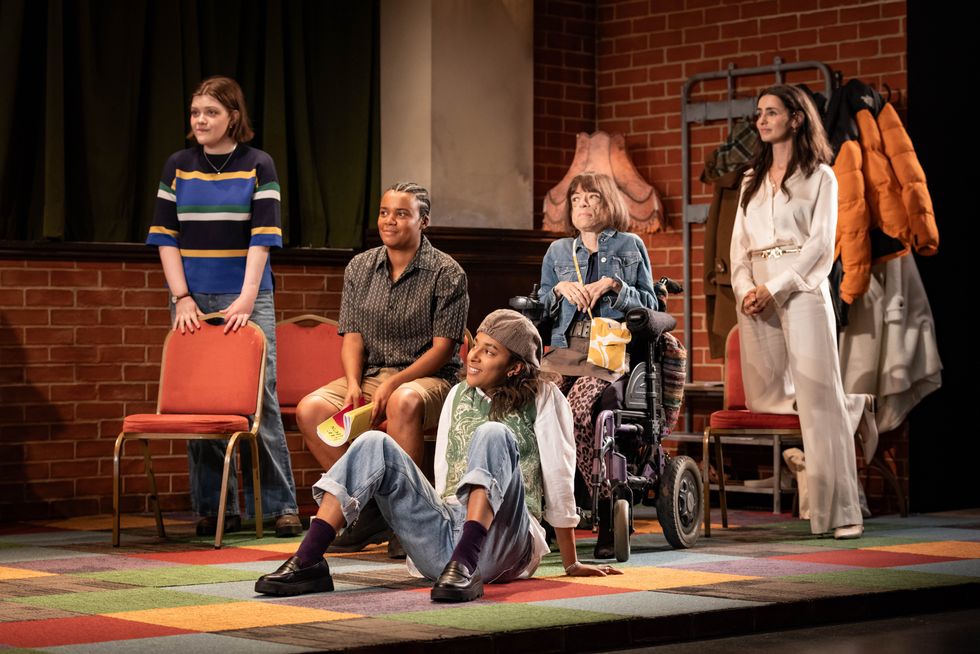 The crew of The Ministry of Lesbian Affairs
The crew of The Ministry of Lesbian Affairs
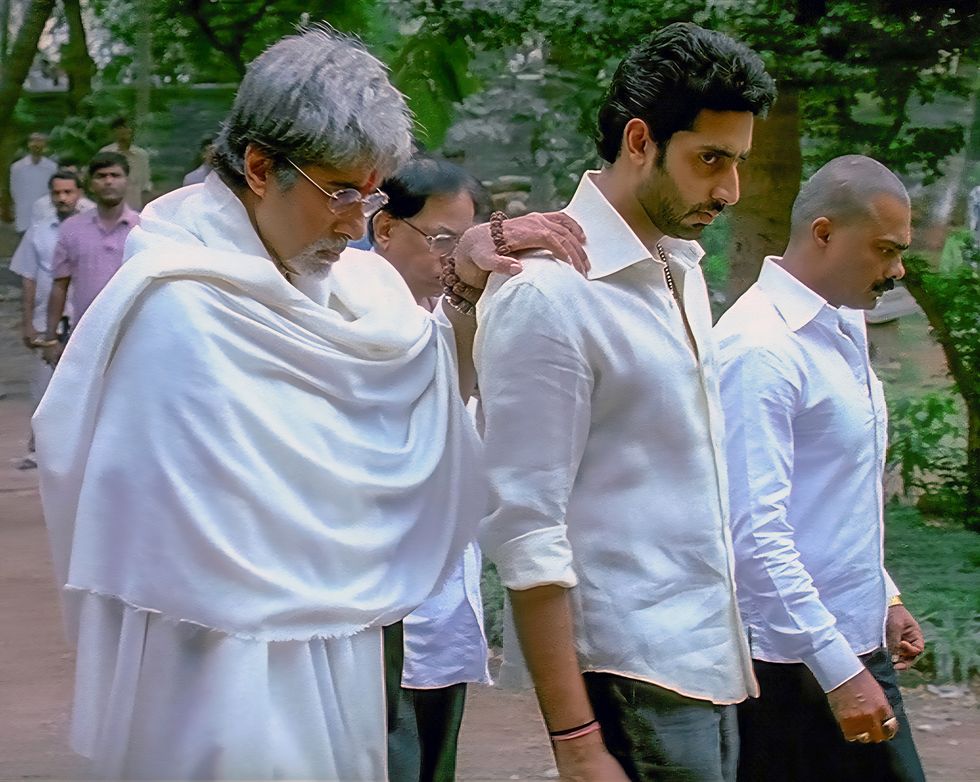 A still from Sarkar, inspired by 'The Godfather' and rooted in Indian politicsIndia Glitz
A still from Sarkar, inspired by 'The Godfather' and rooted in Indian politicsIndia Glitz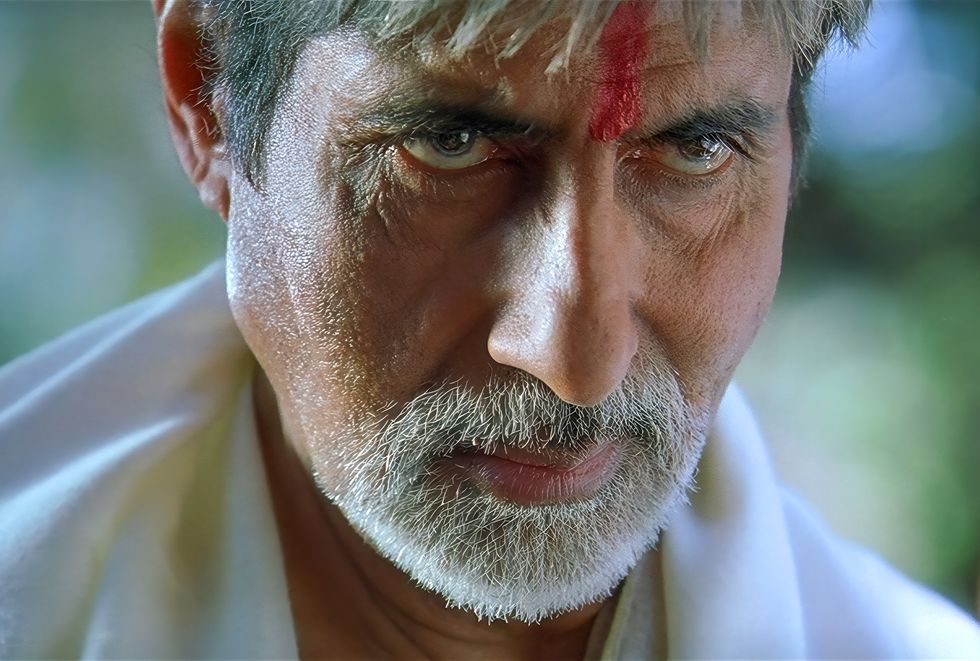 Sarkar became a landmark gangster film in Indian cinemaIndia Glitz
Sarkar became a landmark gangster film in Indian cinemaIndia Glitz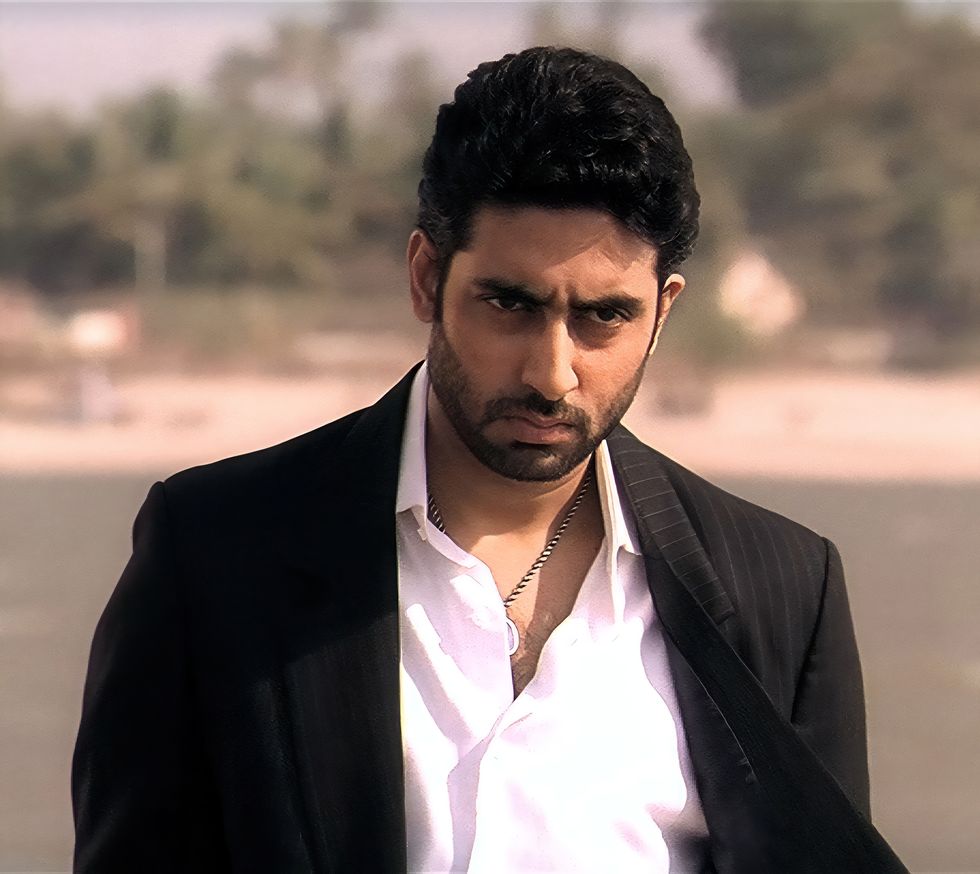 The film introduced a uniquely Indian take on the mafia genreRotten Tomatoes
The film introduced a uniquely Indian take on the mafia genreRotten Tomatoes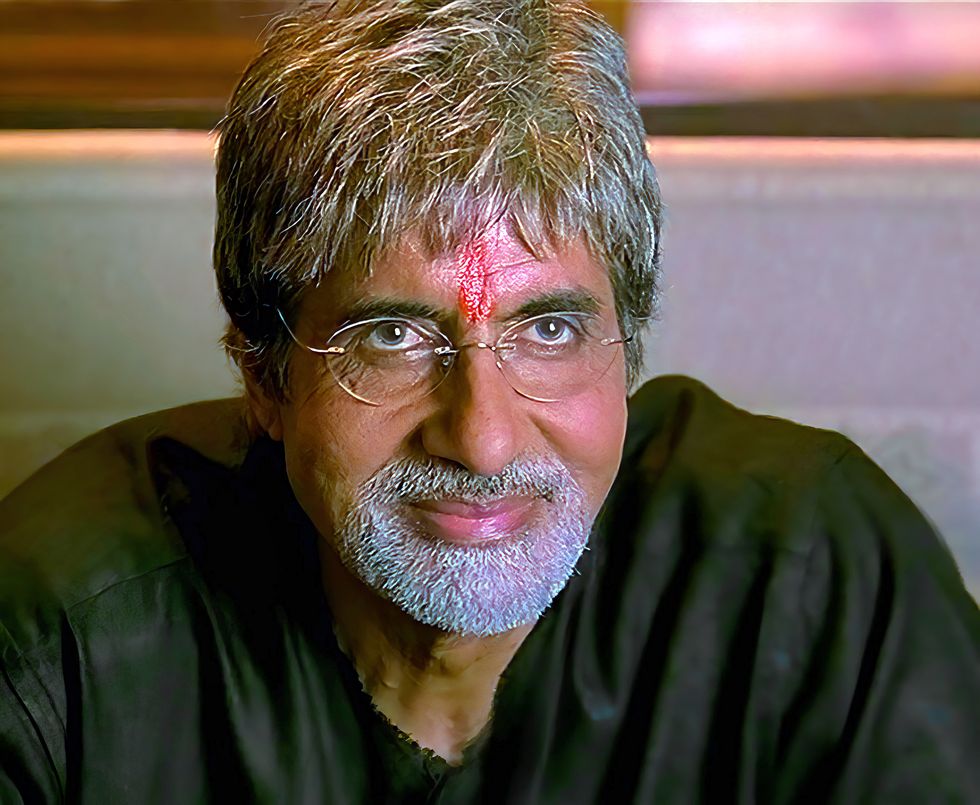 Set in Mumbai, Sarkar portrayed the dark world of parallel justiceRotten Tomatoes
Set in Mumbai, Sarkar portrayed the dark world of parallel justiceRotten Tomatoes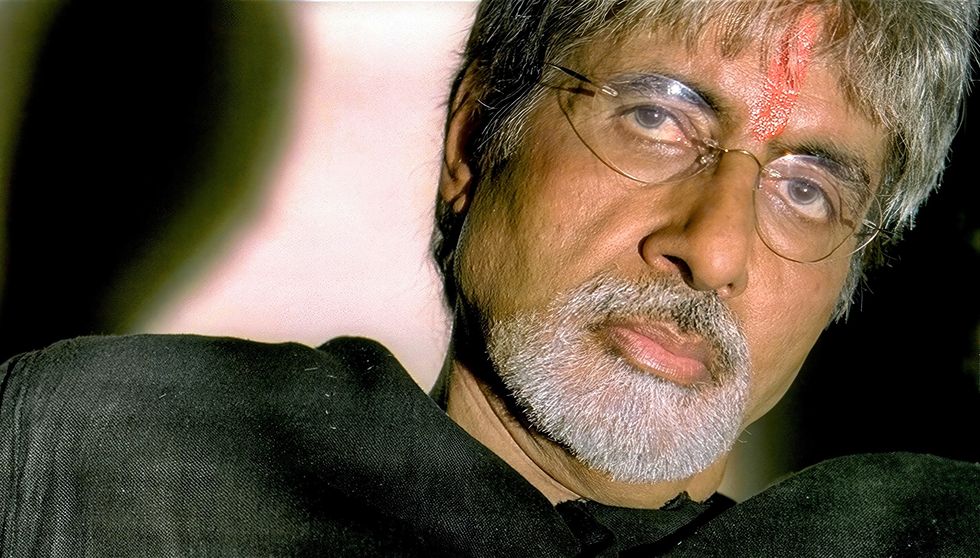 Ram Gopal Varma’s Sarkar marked 20 years of influence and acclaimIMDb
Ram Gopal Varma’s Sarkar marked 20 years of influence and acclaimIMDb
Police may probe anti-Israel comments at Glastonbury